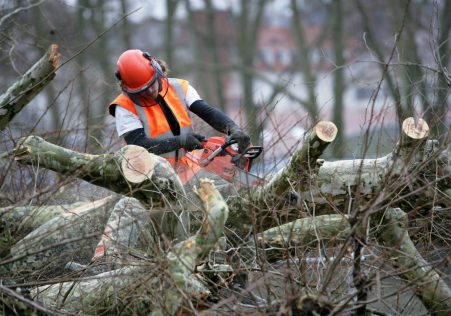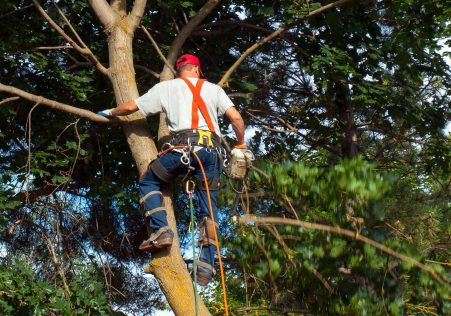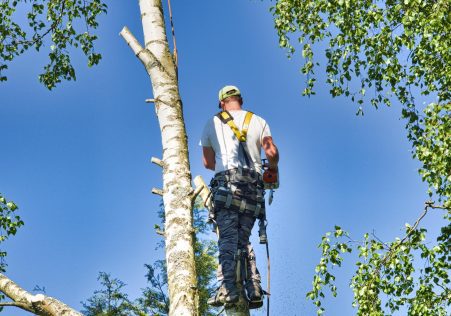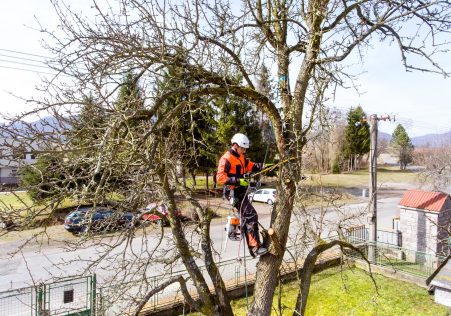How Long Do the cut Tree Roots Last?
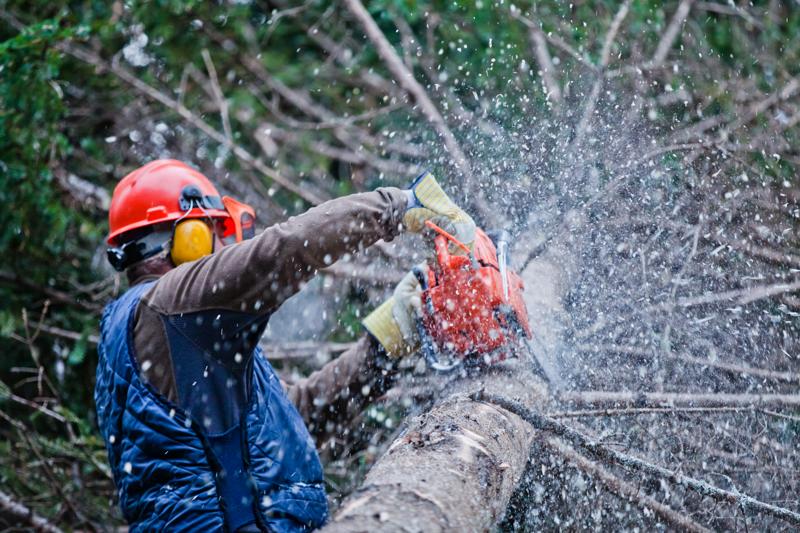
Tree removal is an essential job for many property owners, but it’s not as easy as cutting off the branch and allowing the roots to decay. Knowing the life span of tree roots is crucial in ensuring that the removal process is done in a safe and secure manner. This article we’ll explore the length of time the roots of trees last after a tree is cut down and answer some of the most frequently asked questions about this topic.
How long do tree roots live after cutting down?
The lifespan of tree roots after a tree has been cut down can differ greatly based on the species of the tree being cut down, length of the roots, and the environment conditions. It is generally possible to conclude that tree roots will remain alive for many years after a tree has been removed. This is due to the fact that the roots are capable of absorbing water and nutrients from the soil, even after the tree is removed.
Factors that Affect the Longevity of Tree Roots
There are a variety of variables that affect the longevity of tree roots after a tree has been taken down. A few of them are different species of trees Certain species of trees contain roots that are robust and more durable than other species. For example, oak tree roots have been observed to last for a long time after the tree has been removed. Size of the roots The bigger the roots of a tree are, the longer they will likely last after the tree has been removed. The reason for this is that larger roots are more able to absorb water and nutrients from the soil. Environmental conditions: The soil type, temperature, as well as levels of moisture in the region in which it was cut can all impact the longevity that the root system. When the soil becomes dry, compacted and degraded, the roots are likely to decompose more quickly. When the soil remains moist and well-drained, the roots will last longer.
What happens to the tree Roots After cutting them down?
If trees are cut down, the roots will slowly start to break down. This process may take a few years dependent on the variables discussed above. During this time the roots gradually release nutrients back into the soil which is beneficial to other plants in the area. Once the roots have fully gone through their decomposition, they will no longer pose a threat to structures or landscapes around them.
FAQs:
Can tree roots regrow after being cut down?
Tree roots are not able to regrow after a tree has been removed. After the roots have been removed, they slowly begin to break down and no longer be capable of growing again.
Are tree roots able to continue to grow after cutting them down?
The roots of trees aren’t going to continue to grow after a tree has been cut down. However, they’ll remain alive for a number of years as they’re still capable of absorption of nutrients and moisture from the soil.
Do tree roots continue to grow even after the tree has been cut down?
The roots of trees won’t continue to grow after a tree has been taken down. Once the tree has been taken down, the roots will slowly begin to decompose and will no longer pose a threat to the landscape or surrounding structures.
Conclusion:
In conclusion, the longevity of tree roots following the tree is removed is a matter of debate dependent on a variety of factors. Understanding the length of time the roots of trees will last is essential to ensure that the removal of trees is carried out properly and safely. If you own a tree that needs removal, it is always recommended to hire a professional Hawkesbury Tree Removal arborist to carry out the job. Our highly trained and experienced arborists have the equipment and experience to safely and efficiently remove trees and resolve any concerns regarding the longevity that the tree’s roots. Call us today by phone at 0480 024 203 to schedule a consult and to learn the details about our services for tree removal in Hawkesbury. Do not risk damaging your property or putting yourself in danger by attempting to remove a tree your own. Let the experts at Hawkesbury Tree Removal handle all of your tree removal requirements.















